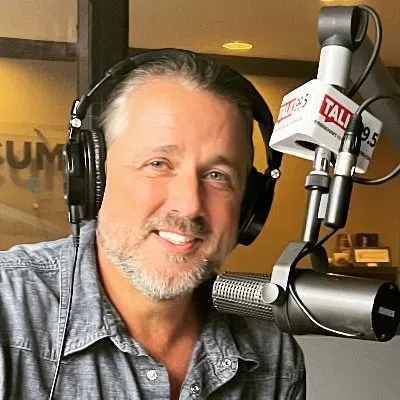Sometime in the early 1970s in India a newly born boy, all blue from lack of oxygen, was wrapped in a white cloth and placed on the floor, about to be forgotten.
That little human’s whimpers, or lack thereof, were not meant to disturb medical professionals who were busy taking care of an unconscious woman on the gurney.
The baby was me. The woman, my mother.
For seven months before that day my mom underwent both chemotherapy and radiotherapy with me in her womb.
She would be diagnosed with cancer a month or so after I was conceived.
The symptoms were aggressive.
Trying to understand the side effects of these treatments was limited at best in India at the time. Every sane adult, every single doctor, and my father also — strongly advised my mom to abort, a procedure that was, and still is, easily available.
My mom refused and bore me to term. The doctors did what they thought was best. They chose to allow this very sickly child to expire on his own and devoted all attention to my mom, who needed every bit of it.
Until . . .
An ayah — a Dalit woman, who was unregulated subsistence wage-earning daily-help — thought differently.
Seeing a newborn struggling and blue from lack of oxygen, she breathed into my mouth for 45 minutes until I began crying, by which time my mom also regained consciousness.
Doctors could no longer ignore me.
A life born one hour ago (at the time) was given recognition and a fighting chance to live.
The rest, they say, is history.
My mother survived cancer for 37 years and died of unrelated causes but required frequent visits to the hospital.
If I accompanied her and we crossed paths with that ayah, my mother always ensured I prostrate in front of her.
She remains the only living person before whom I prostrated, ever.
In years since then I have had non-medical brushes with death — a near-drowning, once almost getting crushed under a fast-moving bus, e.g., — and at least two medical close encounters, including an open-heart surgery in 2009.
Despite all of these, news of my death has always been exaggerated.
Nineteen years ago, it was a different story altogether when I became a father.
Previously, for months, I’d established a real relationship with that still-forming human being. We poked each other, I sang songs, I held the tip of a wave that were surely the fingers? Or toes? Who cares?
Within one minute of coming out of the wombs I held this wriggly body with very wrinkly skin, an ashen face with big splotches of red from hours of exhaustion, physical trauma, bruises, and a whole head of unruly hair with a pair of keen, searching, and observing eyes.
Two whole sets of tiniest hands found their way by themselves to clasp my left pinkie.
I can still feel the electricity that rushed through my body at that moment.
That was the biggest miracle I have experienced, bar none.
I try to live consciously by these five words, each beginning with the letter “F”:
- Family
- Freedom
- Faith
- The Flag, and . . .
- Fortune, aka, fruits of labor.
For this writer, it began with someone’s contrarian insistence to live or die through the consequences but not let me die.
Subsequently, it was somebody else’s contrarian gesture to go beyond her duty and let me have a fighting chance.
The circle of life continued and reached a crescendo when another life spawned and made all the struggles of previous generations all worth it.
Why am I telling you all these?
Because parenthood matters.
Because every life, even unborn ones, matters.
Because family matters.
Because faith matters and miracles do happen.
Because the wound of your father trickles down generations unless you make a conscious attempt to break the chain.
When talking about the sanctity of life it’s customary to point out women pay a larger price in any pregnancy.
I completely agree with the premise that not only men have the biological hall pass, society also makes it easy for them to shirk.
Biological reality cannot be argued with, but we can make pregnancy easier on the woman by giving her a helping hand all the way.
If men can’t t be bothered with the duties of fatherhood, we must make them bear the burden, and then some, under threats of criminal penalty, social ostracism, loss of job and other pecuniary loss, among others.
If one was aware enough to start the pregnancy process, he must remain aware enough to do his part afterwards. After initial misjudgments I mentioned, my dad set examples that I try to follow, marked by tremendous sacrifices that he incurred willingly so my sister and I can have a better life.
Give life a chance. We have nothing if we don’t have parenthood . . . or life.
All opinions are of the Author alone, and do not necessarily represent that of any organization he may be part of. The author alone is responsible for any error or omission.
Partha Chakraborty, Ph.D., CFA is an economist, statistician, and a financial analyst by training. Currently he’s an entrepreneur in the field of water access, AI/ML, and wealth management in the U.S. and India. Dr. Chakraborty resides in Southern California. Read Partha Chakraborty’s Reports — More Here.
© 2025 Newsmax. All rights reserved.






